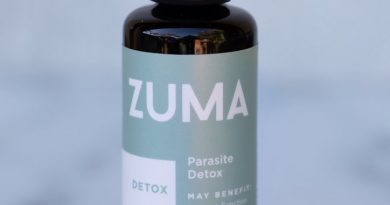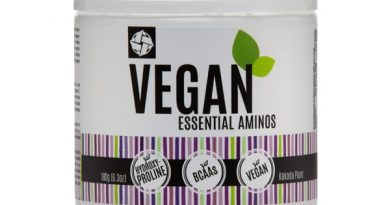A Brief Guide On the Essential Vitamins for Our Body
A healthy balanced diet has all the vitamins required by your body for optimal health. Vitamins are essential chemical compounds that are responsible for many of the life-supporting processes that are carried out. If a proper amount of vitamins is not taken in, then it may cause several vitamin deficiencies. Therefore, an adequate amount of vitamins should be taken regularly to maintain a good healthy lifestyle.
Usually, vitamin deficiencies are cured with the help of vitamin supplements and also changes in diet. Vitamin supplements are fortifiers that are rich in vitamins and help your body to overcome the lack of vitamins. It is not difficult to choose which vitamin supplement you should take as there are many branded supplements that are easily available. For example, Gummies Garden is a renowned name in this industry. Remember to take your physician’s advice before consuming any supplements.
Contents
Some essential vitamins required by our body
Vitamins are micronutrients, as our body only requires a small amount of them. There are currently thirteen vitamins recognized. Four of which are fat-soluble vitamins, and the other nine are classified as water-soluble vitamins. All of these are necessary for our body as failing to acquire even one of them can result in serious consequences. The following are the vitamins that are commonly found in the human body:
- Vitamin A
- Vitamin K
- Vitamin E
- Vitamin C
- Vitamin D
- Vitamin B1 (thiamine)
- Vitamin B2 (riboflavin)
- Vitamin B3 (niacin)
- Vitamin B6
- Pantothenic acid (B5)
- Biotin (B7)
- Vitamin B12 (cyanocobalamin)
- Folate (B9 and folic acid)
Role of vitamins in our body
Vitamins are known to play a hundred roles in the human body. Different vitamins in our body perform different bodily functions. Some functions of vitamins that are essential for our body are:
1.) Vitamin A
It is a fat-soluble vitamin. Our bodies usually store it in the liver. It helps maintain and form strong and healthy teeth, mucus, membranes, skeletal and soft tissues. Vitamin A also helps boost your eyesight as it is actively involved in pigment production in our eye’s retina.
2.) Vitamin C
It is a water-soluble type of vitamin. It is also called by the name of ascorbic acid. The main functions of Vitamin C include helping the growth and repair of tissues all over thge human body and healing of wounds. It also aids in the absorption of iron.
3.) Vitamin D
It is the only vitamin that is hardly obtained from the diet. Instead, it is taken in the presence of sunlight. This vitamin is very important as it helps in the absorption of calcium. Calcium is a mineral that is really necessary for bone formation, and not getting enough of it can result in the suffering of bone tissues.
4.) Vitamin E
It is a fat-soluble antioxidant. Its main function is to help to keep our immune system strong. Additionally, it aids in the formation of red blood cells. What’s more, these vitamins help in protecting the body tissues from damage that is caused by harmful substances.
5.) Vitamin K
This fat-soluble vitamin works for the clotting of blood. Research also suggests that this type of vitamin is used to help maintain strong bones in adults.
6.) Vitamin B1 (thiamine)
Thiamine is a B vitamin. It is categorized as a water-soluble vitamin and is also known by the name vitamin B1. This vitamin works as a machine for the extraction of energy from the carbohydrates present in our diet. Furthermore, vitamin B1 is important for conducting nerve impulses and muscle contraction.
7.) Vitamin B2 (riboflavin)
Like most other B vitamins, it also comes under the category of water-soluble vitamins. This vitamin is also called riboflavin, and its function is to increase the body’s growth and produce red blood cells. Riboflavin also helps to release energy from proteins.
8.) Vitamin B3 (niacin)
This is the vitamin that is responsible for maintaining the proper functioning of many systems in the human body. They include our digestive system, nervous system, and skin. It is a water-soluble vitamin that is also responsible for changing food into energy.
9.) Pantothenic acid (B5)
This component is essential for growth and helps our bodies to break down the food and consume it. Not only does it help in the production of fatty acids, but it also plays a role in making cholesterol and hormones.
10.) Vitamin B6
Vitamin B6 is one of the most important vitamins of the human body as it produces antibodies and plays a major role in making hemoglobin, which is an important component of blood that carries oxygen. Moreover, this vitamin sustains nerve function and breaks down proteins, all the while keeping our blood sugar levels low.
11.) Folate (B9 and folic acid)
Folic acid is a part of the vitamin B complex. It comes under the category of water soluble vitamins. The most important functions of this vitamin are the formation of red blood cells and the production Of DNA. In addition, it works for the growth of body tissues and breaking down proteins.




